A journey towards healthy, connected ecosystems and thriving communities in Mozambique and Tanzania
In the heart of the Manica province, Mozambique, it’s midday and the air is hot and heavy, filled with the rustle of tall grasses, the low chatter of voices in the fields, and the steady rhythm of hands picking crops…
Scroll down to discover the photographs and the stories behind each of them
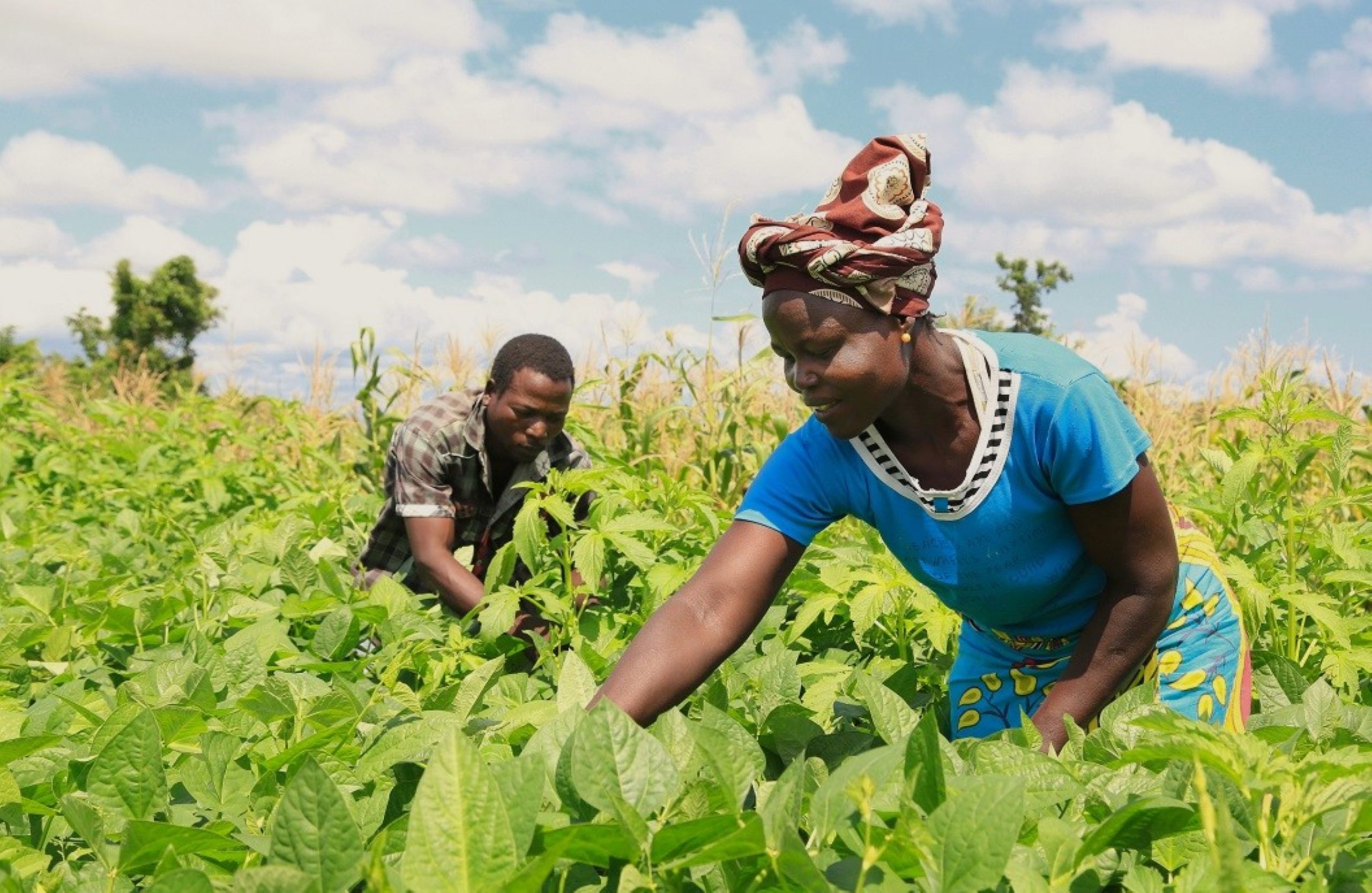
Farmers attending to their crops, Mozambique
Here, smallholder farmers are changing how they work the land. For instance, with SUSTAIN’s support, climate-smart agriculture practices are being used by communities to grow their food. Farmers are also increasingly turning to organic composting and natural soil enrichers to restore degraded land and boost crop productivity. “These new practices reduce spending and increase profits,” says farmer John Moteriua.
By replacing chemical fertilisers and pesticides, farmers are decreasing nutrient run-off and safeguarding the quality of local water sources. These approaches help make communities resilient to a changing climate and increase long-term food security.
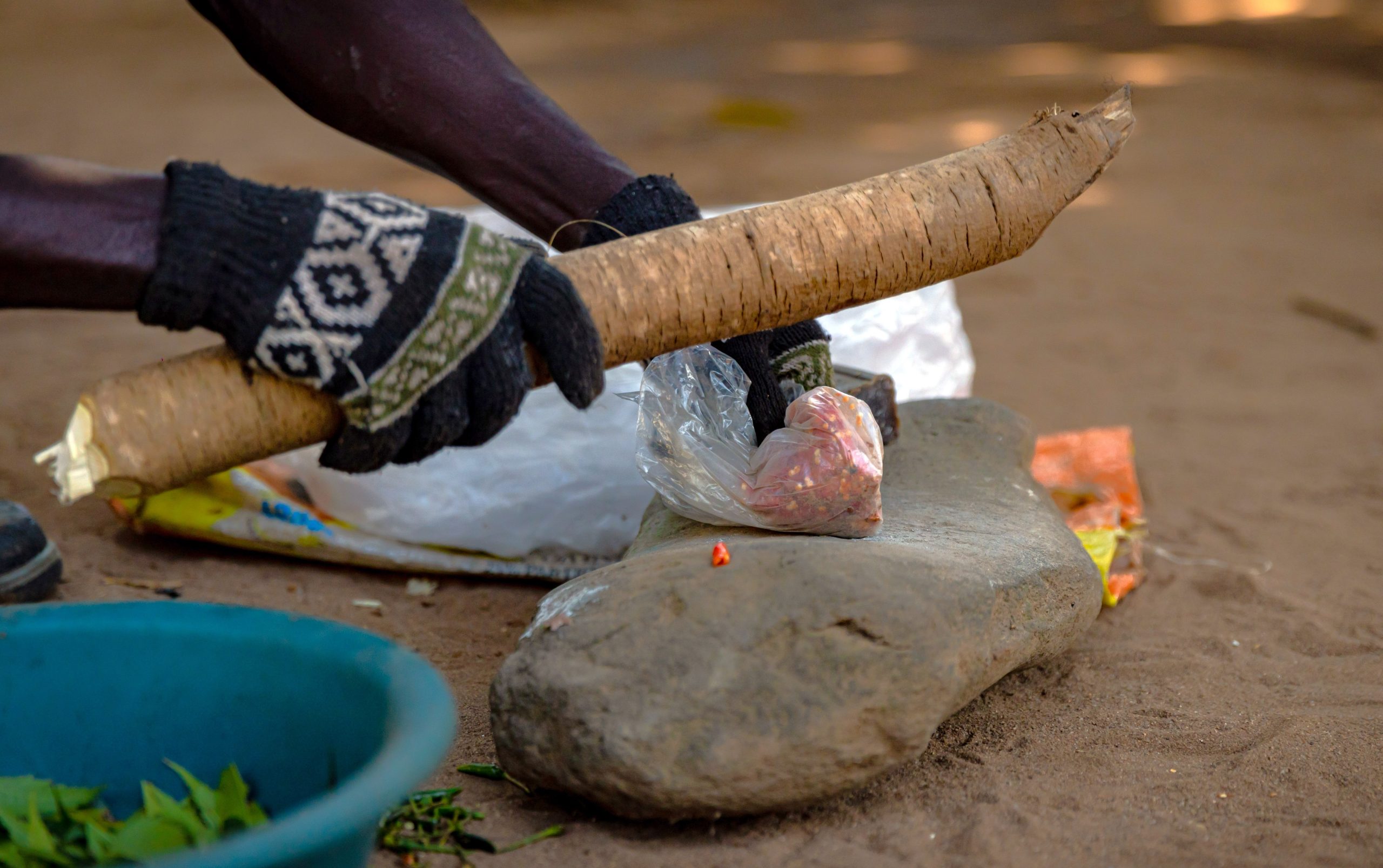
Farmer making organic pesticide, Vanduzi district
Back in Manica, farmers have learned to create their own organic pesticide by combining leaves from the Muquina plant with soap, hot pepper, and tobacco. After soaking the mixture for a day, the liquid is drained and diluted with water, providing a safe, low-cost alternative to chemical sprays.
Artur Tunguza, the president of Bairro Maputo, a local farmers’ club, explains this process: “We combine all these ingredients, adding 200 grams with a one-inch size piece of soap to create a strong pesticide that helps combat resistant pests.”
Blending traditional knowledge with modern techniques, farmers are returning to the practices that help create more resilient and productive landscapes.
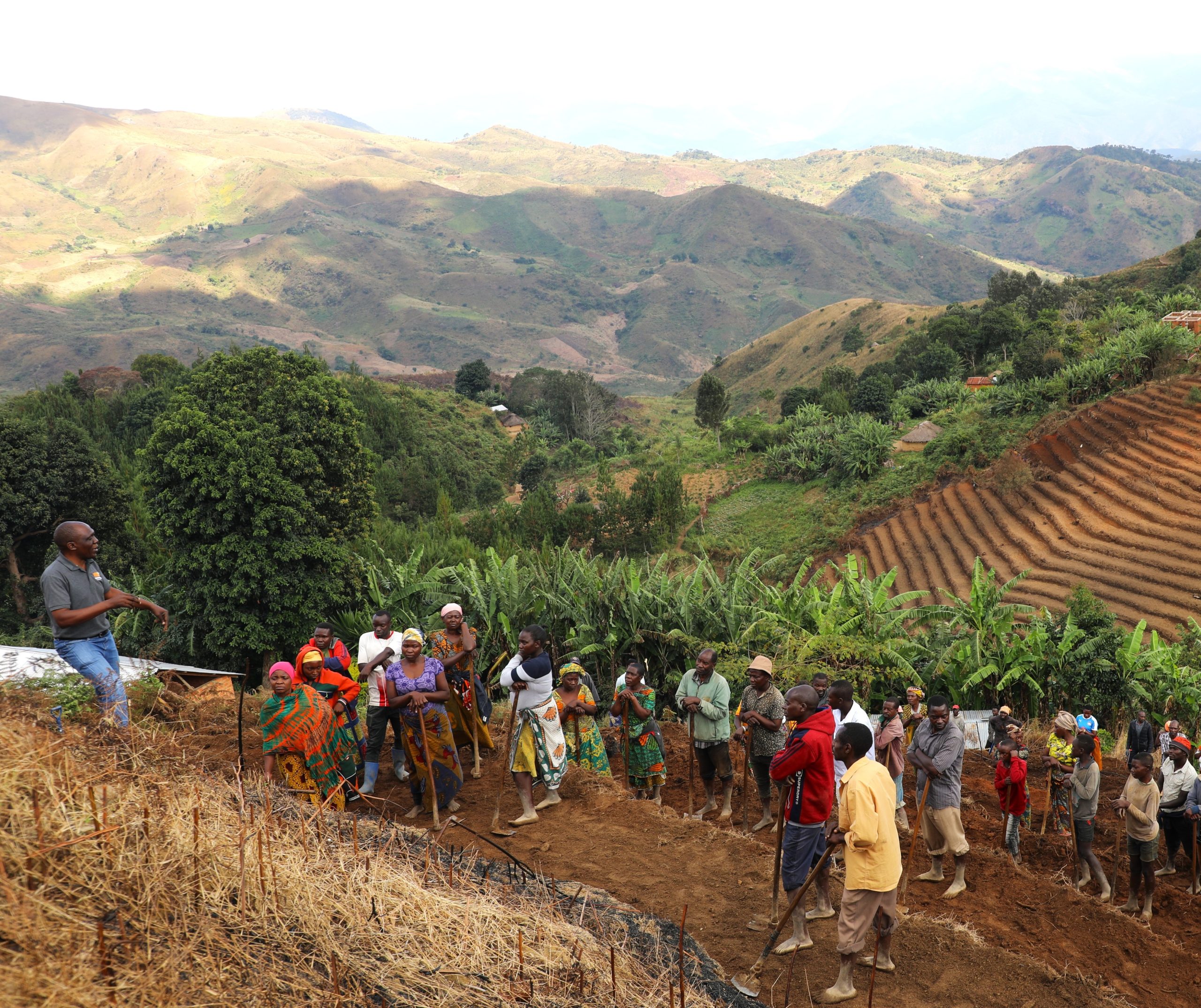
Discussion between AWF and farmers during a training session
Groups from the Vidunda community in Tanzania’s Kilombero landscape gather on a terraced field for hands–on training led by agricultural extension officers and local authorities, who work closely with SUSTAIN, in collaboration with the African Wildlife Foundation (AWF). The training has a clear goal: to empower farmers, including women and youth, to adopt climate-smart agriculture practices.
As the day progresses, the community members are equipped with the knowledge and skills to establish 30 acres of demonstration plots across the terraces, where they will grow avocados, spices, vetiver grass, cereals, and legumes in between their usual crops.
This is a cornerstone of climate-smart agriculture; a move away from monoculture and towards crop diversification, rotation, and intercropping. Adopting these methods – which were familiar but not yet widely practiced – supports water conservation while reducing soil erosion, and, over time, will allow communities to thrive and prosper in the face of unpredictable weather and climate impacts.
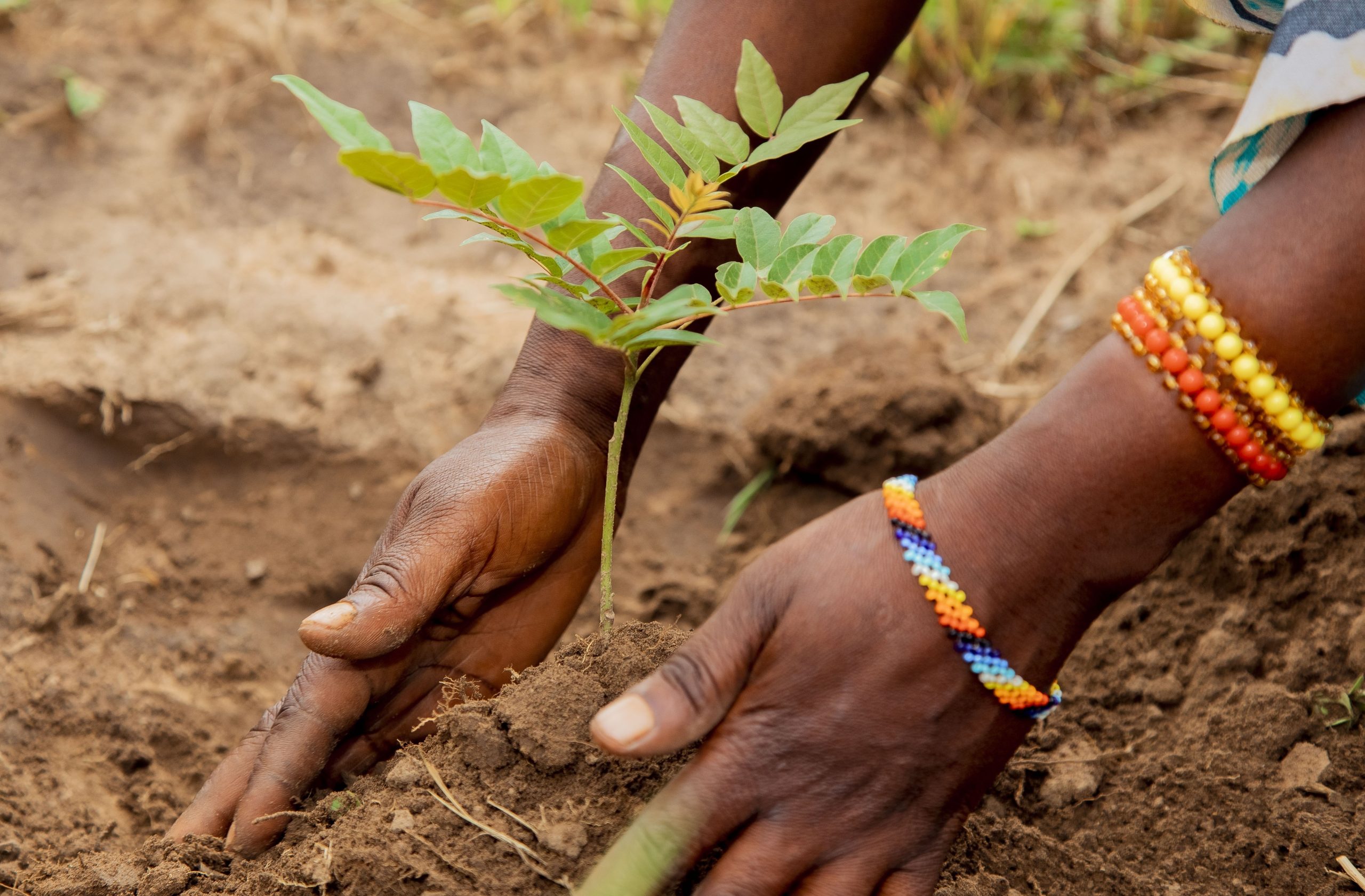
Seedling in the Sumbawanga Landscape
Each seedling planted represents a small act of resilience, a commitment to nurture the land and prepare it for the future. As more farmers embrace sustainable production methods, they are seeing tangible improvements, including lower costs, healthier soils, and crops that provide a reliable source of food for their families and strengthen local economies
Through SUSTAIN’s work, over 1,200 farmers have already acquired skills in climate-smart agriculture and nature-based solutions, including agroforestry, water conservation, and biodiversity protection.
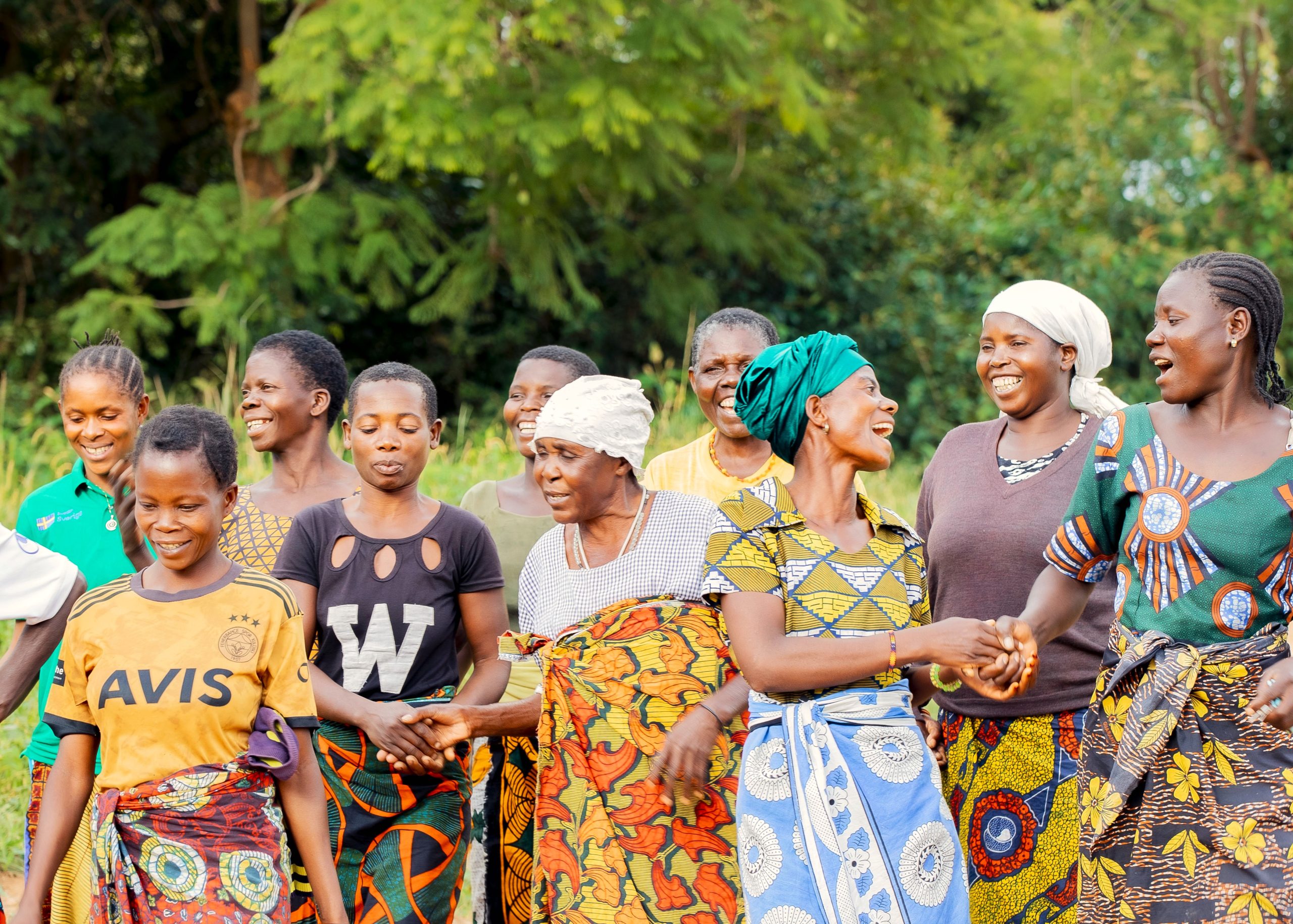
Farmers after participating in the Lake Kwela restoration project, Tanzania
Hundreds of kilometres away, in Sumbawanga Landscape, the story of SUSTAIN continues around Lake Kwela. This lake, which acts as a vital water source for the surrounding communities, was once at risk of declining water quality and increasing treatment costs due to deforestation, overgrazing and illegal fishing. “Before this project came, we were using the lake without any regulations. You could bring your livestock to graze and water them and leave, without realising that we were damaging the environment of Lake Kwela” said Daniel Aubu Muhenga, the secretary of the Village Natural Resources Committee (VNRC) in Tanzania.
From village leaders to local government officials, restoring the lake was deemed a necessity. But with so many groups using the lake on a day-to-day basis, establishing a shared understanding was an essential starting point.
SUSTAIN collaborated with local leaders, water experts and development organisation, SNV Netherlands, to facilitate an extensive community engagement programme, promoting sustainable water management and empowering the community to take an active role in conservation by restoring the lake’s buffer zone.
Building on workshops designed to strengthen the capacity of Village Natural Resource Committees (VNRCs), more than 60,000 trees, provided by Tanzania Forest Services (TFS), were planted; boundary markers were installed, with support from Lake Rukwa Basin Water Board (LRBWB); and alternative cattle watering points were established by the Rural Water Supply and Sanitation Agency (RUWASA) to minimise direct water pollution – all helping to enhance the lake’s ecological resilience.
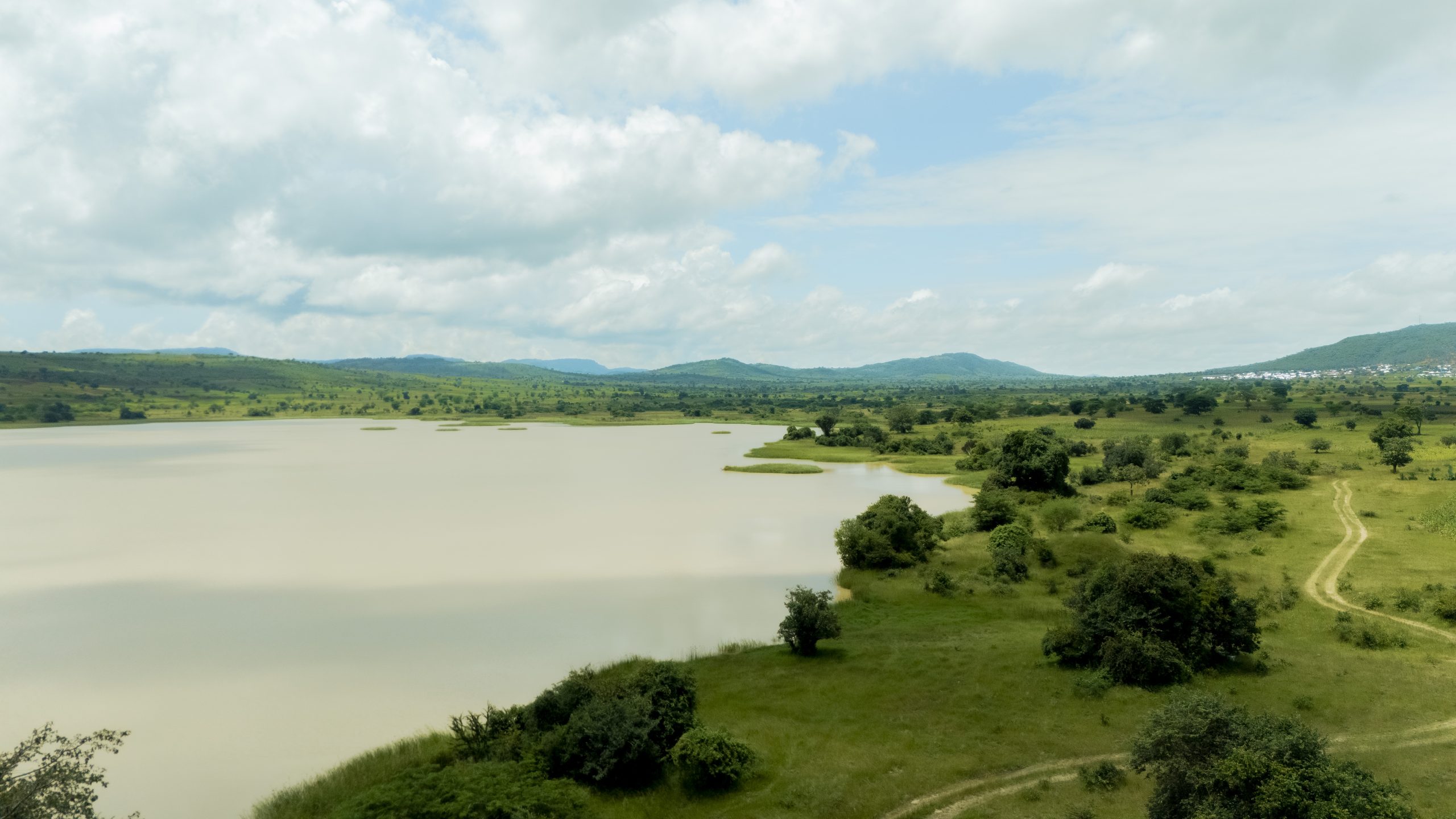
Aerial view of Lake Kwela
Alongside this, fisherfolk, who once used very fine nets that catch juvenile fish and threaten future fish populations, or even poison, were trained in sustainable fishing practices, while awareness meetings helped reshape the community’s relationship with the lake.
Lake Kwela’s restoration is set to benefit more than 24,000 people across seven villages, showing the power of community-led conservation in creating lasting environmental and social impact.
Today, Lake Kwela is gradually recovering, acting as a reminder that locally-led solutions can create richer futures and revive what once seemed lost. Through knowledge and respect for the land, a new generation of farmers is growing not just crops but building resilience itself.
Watch the video to find out more about community led water conservation at Lake Kwela, Tanzania
This article is a part of the SUSTAIN Stories campaign, which is celebrating the ongoing successes of SUSTAIN across its three pathways and the individuals and communities that make it possible. The SUSTAIN initiative is supported through the generous contributions of Norwegian Agency for Development Cooperation (NORAD) and The Swedish International Development Cooperation Agency (Sida).